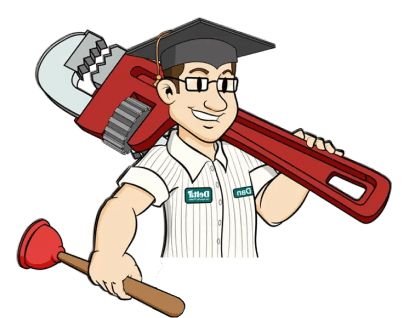If you think septic maintenance is only a job for the pros, you’re wrong. Homeowners can also participate in some maintenance steps to keep their septic systems in prime condition. These steps shouldn’t replace what a pro will do, but they will help keep your septic system in good maintenance without too much time or effort.
When a professional comes to your home to give your septic system a tune-up, the pro performs hazardous tasks such as accessing the septic tank through manholes and ports. He can safely perform this task because of extensive knowledge of inspecting tanks and dealing with noxious sewage fumes. The pro will also check the plumbing connections in the home and measure the sludge and scum inside the tank. Finally, the expert will assess the condition of the drainfield and address any problems with the tank.
The steps homeowners can take to keep their septic systems in prime condition are pretty easy:
Protect the system
Avoid planting any landscaping near the tank because roots deep in the ground can penetrate and damage the tank. Know where the tank is located, and ensure that you never operate heavy machinery on top of it or the drainfield. Depressing the soil can damage the tank and drainage. If you hire out lawn care, make sure the operator knows how to safely mow over the drainfield and tank. Never construct an outbuilding on the drainfield; it may compromise the drainage system.
Conserve water
Water conservation practices help to keep the system in good condition. Overall, the less water your household uses, the less processing the septic tank must do. On the extreme end, using lots of water within a short period may overload the drainfield. Your household can conserve water by washing only full loads of laundry and running full dishwashing loads, too. Purchase water-saving appliances when it’s time to upgrade them. Install low-flow aerators and shower heads to limit the amount of water you use when you bathe or wash hands. Fix leaky faucets and pipes right away to avoid wasting water.
Practice effective disposal
The final key to maintaining your septic system is to know the items that can damage it. Carefully consider what you put down sink drains and flush down toilets. This will help keep the septic tank in good operating condition. Avoid putting these items down the drains:
- Coffee grinds
- Grease or oil
- Plastic
- Paper towels
- Cigarette butts
- Floss
- Diapers
- Cat litter
- Drain cleaners, which upset the delicate balance of bacteria in the septic tank
- Varnish or paints
- Anti-freeze
- Medicines
As a rule, if you can put the item in the garbage instead of down the sink or toilet, do it to spare your septic system.
If you’d like more information about septic maintenance, or to schedule a service appointment, contact Delta The Educated Plumber. We offer comprehensive plumbing services to homeowners and businesses in greater Atlanta.



